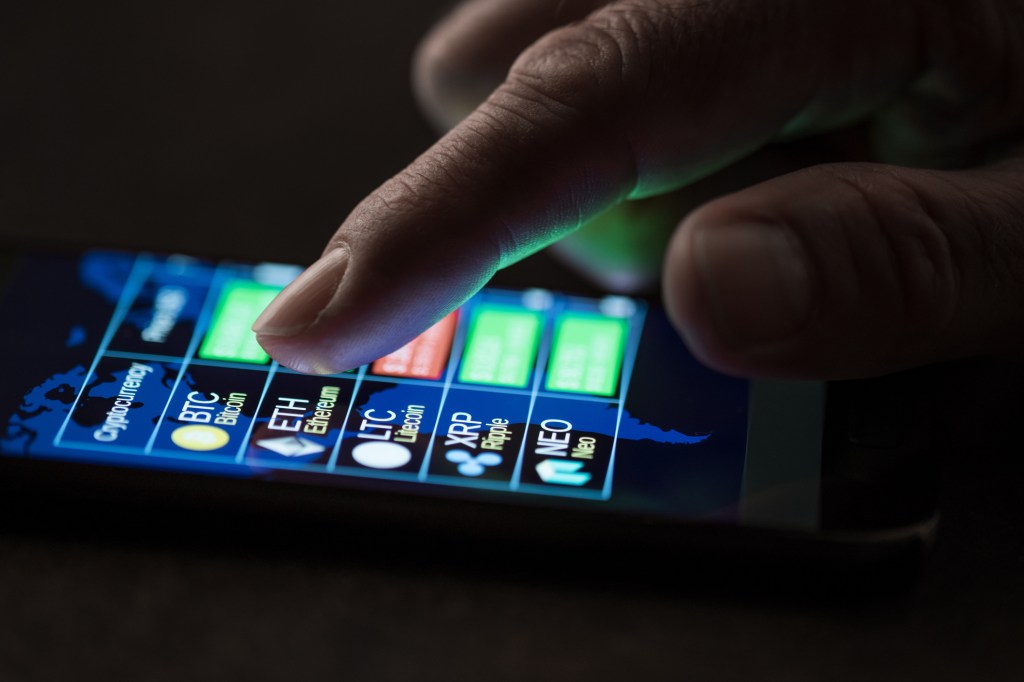Choosing a crypto exchange? Celebrity endorsements were the big new thing in crypto this time last year. If you weren’t downloading an exchange app after watching a Matt Damon ad, what the hell?
Twelve months later (and wiser) most crypto users couldn’t care less about an A-lister endorsement. They want security and value. In a post-FTX world, this makes sense. Most of us wouldn’t pick a bank because Larry David wore fancy dress to promote it. Why wouldn’t you apply the same logic to your choice of crypto exchange?
Centralised crypto exchanges (CEXs) are intermediaries between buyers and sellers. They’re the most popular type of crypto exchange because they’re the easiest to use. But who do you choose? How do you practice safe CEX?
As an industry insider and someone with more crypto exchange apps on my mobile than is healthy, here are my top five criteria for choosing an exchange wisely:
Keep your crypto safe
Crypto is a hot mess of fraud and scams, right? Errr, not quite. On well-run centralised exchanges, typically less than one percent of transactions are linked to fraud. This is a figure that stacks-up pretty well to traditional finance.
The key words here are ‘well-run’. Before you choose an exchange, find out what security it’s got and make sure it takes its legal responsibilities seriously. It should offer two-factor authentication, biometrics and breached password protection. A lot of Aussie exchanges today also hold an ISO 27001. This is an internationally recognised standard for privacy protection that generally shows an exchange takes the protection of its customer data seriously.
If you plan to hold your Bitcoin, Ether, Pepe, or whatever other coin on an exchange, you should also research that exchange’s custody arrangements. In other words, does the platform keep your crypto safe? Some exchanges keep customer assets in their own ‘cold storage’, a solution that means they’re not accessible from the internet but are under the control of a few individuals. Others use institutional grade custody solutions provided by the likes of Fireblocks and Bitgo. There is no right and wrong but do your research and remember that self-custody is still the industry standard. I’d strongly recommend you consider it, even though I understand it’s not for everyone due to its technical requirements and the responsibility that comes with complete ownership.
Finally, a word on decentralised exchanges, or ‘DEXs’. A lot of sophisticated crypto traders went to DEXs after FTX. But neither option is 100% risk free. Unfortunately, some DEXs have a track record of getting hacked and we’ve seen a few smaller DEXs drained in rug pulls and smart contract exploits.
Choosing a crypto exchange: Made in Australia
My second criteria for choosing an exchange is to check where it was founded. I’m biased, but my advice (for Aussie Chainsaw readers) is go local. Our crypto industry is world leading. Aussies were among the earliest adopters of crypto and that’s translated across into a well-run homegrown industry.
All Aussie exchanges are today required to comply with anti-money laundering and local consumer rights laws. Quite a few also give you access to onshore customer support. You can actually speak to an Aussie if you need help.
Finally, a number of local exchanges have publicly attested to holding customer assets 1:1 and 100% in full reserve. In practical terms, this means they’ve gone on the record that they are not susceptible to running out of funds in the event of a bank-style run. As a side note, a small number of popular Australian exchanges are also independently financially audited by local auditors.

Check out the fees
Fees are always a big consideration. How much is it going to cost you to trade? If this is a key factor for you, it is important not to just look at the headline trade fees you see advertised. You should check out the spreads you pay on trades. In simple terms, the market spread is the difference between the price one person wants to buy an asset for and the price another person wants to sell it for. This can become quite complex because the spreads and trade fees you pay can depend on a range of factors, including the asset you want to trade and the amount.
A quick note on fees at decentralised exchanges. Be aware that you’ll most likely pay lower trade fees but you’ll still need to pay gas fees. Gas fees are the cost associated with the computing power needed to complete your trade. They can be exorbitant on DEXs so be sure to factor them in, especially if you just want to place a smaller trade.
Choosing a crypto exchange: What features have you got?
Do you just want a simple platform to buy some Bitcoin? Or are you after metal crypto payment cards, NFTs and access to a bazillion cryptocurrencies? I am one of those rare and fascinating people who loves talking about crypto regardless of whether you asked me, so I like lots of features. But many crypto users just want a clean, easy-to-use platform that doesn’t require its user to have an ATAR score of 99. Think about what is important to you. There are exchanges in Australia at all ends of the spectrum in terms of features and user experience.
Check out the reviews
The easiest and simplest (and probably the single most effective) way to assess an exchange is to check out its reviews on a legitimate site like Trustpilot or Product Review. In the early days of crypto, the customer experience and fees were generally not great. The industry is now hyper competitive and that is translating into better reviews. A number of exchanges operating in Australia attract consistently positive feedback from their customers.





